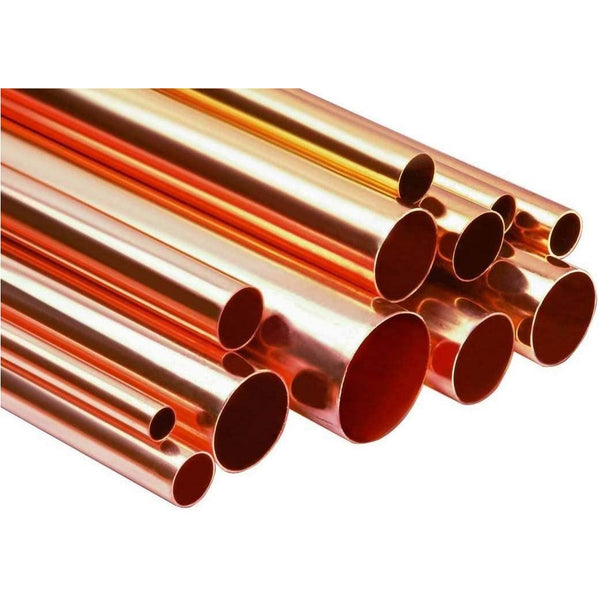Uncovering the Health Advantages of Using Copper Products in Everyday Life
Uncovering the Health Advantages of Using Copper Products in Everyday Life
Blog Article
Discovering the Diverse Applications of Copper Products in Modern Industries
From enhancing the efficiency of electrical systems to playing a vital function in sustainable power modern technologies, the flexibility of copper is obvious. As sectors significantly focus on development and sustainability, the diverse applications of copper warrant a closer exam, specifically concerning their potential impact on future technological innovations and ecological techniques.
Electrical Applications of Copper
Copper is a crucial material in the electric sector, accounting for roughly 60% of the complete demand for non-ferrous metals around the world - Copper Products. Its exceptional electric conductivity, which is virtually two times that of light weight aluminum, makes it the preferred selection for a vast array of electric applications. From wiring systems in industrial and household structures to high-voltage power transmission lines, copper guarantees effectiveness and reliability in electrical power distribution
In enhancement to circuitry, copper is essential to the production of electric parts such as generators, electric motors, and transformers. These elements take advantage of copper's thermal conductivity and malleability, vital for warm dissipation and reliable efficiency. Furthermore, copper's resistance to deterioration boosts the life-span and sturdiness of electrical systems, making it an affordable option in the long-term.
The growth of eco-friendly energy resources, such as solar and wind power, has actually even more boosted the demand for copper in electric applications. As industries shift towards sustainable power services, copper's duty becomes much more essential. Generally, the versatility and performance qualities of copper solidify its status as a foundation material within the electric market, driving technology and effectiveness throughout numerous applications.
Plumbing and Piping Solutions
In contemporary pipes systems, the choice of products significantly impacts both performance and longevity. Copper has become a favored alternative as a result of its one-of-a-kind homes, consisting of deterioration resistance and antimicrobial attributes. These features ensure that copper piping continues to be safe and durable for moving potable water, a vital consideration in residential and industrial applications.
One of the essential benefits of copper in plumbing is its ability to stand up to high temperatures and stress, making it appropriate for a variety of applications, from warm water systems to home heating and cooling networks. Additionally, copper's flexibility permits easier setup in complicated piping layouts, lowering the risk of failings and leaks.
An additional noteworthy benefit is copper's long life-span, commonly surpassing 50 years with proper upkeep. This longevity not just minimizes substitute expenses however additionally adds to sustainable methods by decreasing waste. Copper's recyclability lines up with modern-day ecological criteria, promoting a round economic climate within the plumbing sector.
Copper in Renewable Resource
The versatility of copper expands past pipes applications, playing an important function in the eco-friendly power sector. Its excellent electric and thermal conductivity makes it a crucial product in the manufacturing and distribution of renewable resource resources, specifically solar and wind power. In solar panels, copper is made use of in solar batteries and electrical wiring, facilitating efficient power conversion and transmission. Its resistance to deterioration ensures lasting efficiency, which is critical for maximizing power result over time.

Moreover, as the worldwide need for electrical automobiles (EVs) increases, copper's duty in battery systems and charging facilities comes to be also more substantial. The material's capacity to perform electrical energy efficiently is essential to the performance of EV batteries, improving range and billing rate.
Copper's Role in Electronics
Electronic devices producing depends greatly on copper's outstanding residential properties, specifically its high electrical conductivity and thermal performance. These features make copper an optimal choice for a vast This Site array of electronic elements, including connectors, circuit card, and wiring. The steel's capability to successfully transmit electrical signals makes certain minimal energy loss, which is important in high-performance electronic tools.
Furthermore, copper's thermal conductivity plays a substantial function in warm dissipation, protecting sensitive components from overheating. This is specifically essential in contemporary electronic devices, where compact styles lead to enhanced heat generation. Copper is also preferred for its pliability and ductility, allowing it to be quickly formed right into intricate styles that meet the demands of sophisticated digital applications.
With the surge of consumer electronic devices, telecommunications, and electric automobiles, the demand for copper in the electronic devices sector continues to grow. Therefore, copper continues to be a foundation product in the ever-expanding area of electronic devices.
Ingenious Makes Use Of in Production

One remarkable application remains in additive manufacturing, where copper-based products are used in 3D printing procedures. This enables the creation of intricate geometries and lightweight parts, especially in the aerospace and automotive fields. Furthermore, copper's thermal conductivity makes it an excellent option for heat exchangers, improving efficiency in commercial cooling systems.
Additionally, the rise of clever manufacturing has actually seen the incorporation of copper in IoT devices, where its conductive abilities sustain advanced noticing modern technologies. In the realm of renewable resource, copper is essential in the production of solar panels and wind generators, helping with a lot more efficient power conversion and distribution.
As markets make every effort for sustainability and advancement, copper's flexibility and efficiency remain to place it as a critical material, driving improvements in production and adding to the advancement of smarter, a lot more reliable items.
Verdict
In summary, copper products show amazing adaptability throughout numerous contemporary markets. Copper Products. Their premium conductivity enhances electrical applications, while rust resistance makes sure integrity in plumbing. The important duty of copper in eco-friendly energy and its necessary feature in electronic devices emphasize its significance ahead of time lasting methods. In addition, cutting-edge usages in making emphasize copper's adaptability and enduring importance. Collectively, these applications show copper's essential payment to technological progression and commercial performance in modern culture.
From boosting the performance of electric systems to playing a vital duty in sustainable energy technologies, the adaptability of copper is apparent. As industries significantly focus on development and sustainability, click for info the diverse applications of copper necessitate a closer evaluation, especially regarding their possible effect on future technical improvements and environmental practices.
The development of sustainable power sources, such as solar and wind power, has additionally enhanced the need for copper in electrical applications. Generally, the convenience and efficiency qualities of copper strengthen its status as a foundation material within the electrical market, driving innovation and performance throughout different applications.
The versatility of copper extends past plumbing applications, playing a crucial duty in the eco-friendly energy market.
Report this page